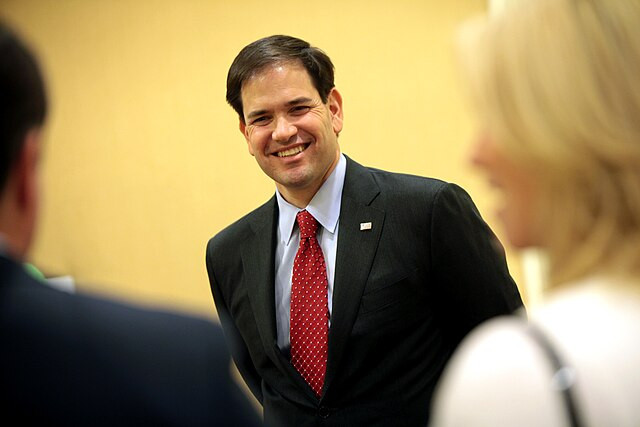Secretary of State Marco Rubio will embark on his first international trip as America's chief diplomat next week, visiting five countries in Central America and the Caribbean. The trip, which includes stops in Panama, Guatemala, El Salvador, Costa Rica, and the Dominican Republic, comes amid President Donald Trump's vocal criticism of Panama over the control of the Panama Canal and his broader efforts to curb migration to the United States.
State Department spokesperson Tammy Bruce said the choice of Central America for Rubio's inaugural trip reflects the administration's focus on addressing migration and economic challenges in the region. "It was important to Secretary Rubio that Central America be his first trip as secretary of state, one that should send a signal to the U.S. and the world of the administration's priorities," Bruce said.
Rubio's visit to Panama takes on added significance as President Trump has repeatedly raised the idea of reclaiming the Panama Canal, which has been under Panamanian control since 1999 following the terms of a treaty signed during Jimmy Carter's presidency. Speaking during his inauguration address on Monday, Trump referred to the canal as a "foolish gift" and claimed Panama had violated the spirit of the agreement.
"We have been treated very badly from this foolish gift that should have never been made, and Panama's promise to us has been broken," Trump said at the Capitol rotunda. Trump has even suggested, incorrectly, that China controls the canal. "China controls the Panama Canal. What's that all about? When Jimmy Carter gave it, which was a terrible mistake, he didn't give it to China, he gave it to Panama," Trump said during a signing ceremony for executive orders earlier this week.
Rubio echoed concerns about China's influence over the canal during his confirmation hearing last week. "While technically, sovereignty over the canal has not been turned over to a foreign power, in reality, a foreign power today possesses ... the ability to turn the canal into a choke point in a moment of conflict, and that is a direct threat to the interests and the national security of the United States," he said.
In response, Panama's President José Raúl Mulino rejected Trump's claims, stating, "The Panama Canal is of Panama's country. It is not a gift." Mulino's remarks underline the growing tension between Washington and Panama as Rubio prepares to visit.
In addition to the canal, Rubio's discussions in Panama are likely to include migration issues, particularly the Darién Gap, a treacherous route between Central and South America that has become a critical passage for migrants heading to the United States. Last year, the U.S. and Panamanian governments signed an agreement aimed at curbing undocumented migration through this route, and Rubio is expected to assess its progress.
The broader trip will also focus on migration challenges in Guatemala and El Salvador, two key transit countries in the Northern Triangle, which also includes Honduras. Tens of thousands of migrants from these nations attempt to reach the U.S. border each year. According to Customs and Border Protection data, however, encounters with migrants from these countries decreased in 2024.
Bruce emphasized that addressing migration is a shared responsibility. "You want people to be able to live in their own country and be safe there, and not have to flee to another one," she said. "If we're going to be safe and prosperous ... we have to have an interest in our neighbors, and in today's world, it's South and Central America."
Economic and supply chain issues are also expected to feature prominently during Rubio's meetings. These discussions come at a time when the Biden administration's economic policies and global supply chain challenges remain critical concerns for the region.






